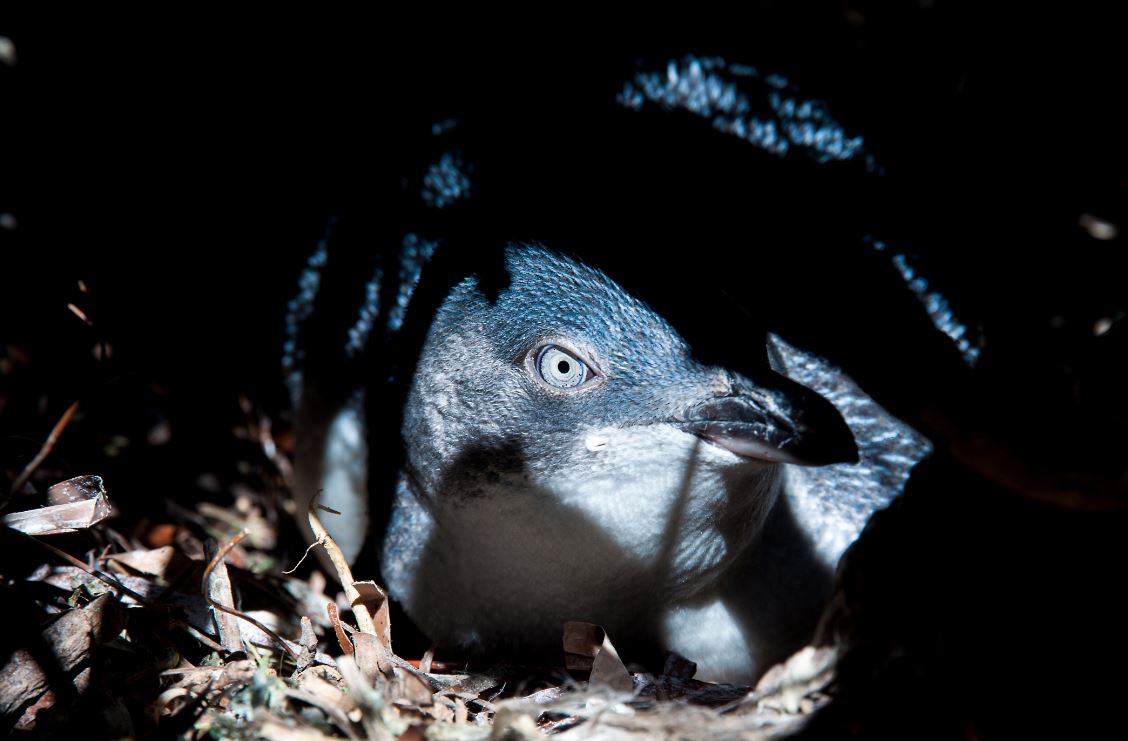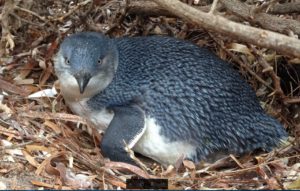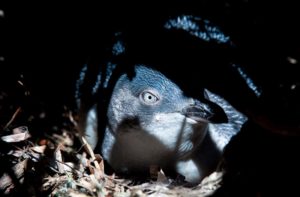
Little penguin habitats and colonies are under threat from urban development and human activities, a new article in the journal Behaviour says.
Flinders University animal behaviour and bird experts used carefully collected remote red-light video surveillance to determine what impact being 'bolder' parents had on penguins' parenting style in human-disturbed environments.
"The parent-offspring relationship was the focus of our new research," says Dr Diane Colombelli-Négrel, from the Flinders University College of Science and Engineering BirdLab.
"When humans are around a lot, the penguins can be bolder."
Bold behaviour relates to how quickly the animal retreats, or how close they let a predator or threat approach them or a nest.
While the researchers predicted bold individuals would invest less time in parental care, as has previously been observed in other bird species, this was not the case.
"We found a penguin's boldness has no bearing on its performance as a parent, such as how often it returned to the nest, fed its chicks, or stayed overnight. However, the attack or flight response can put the animals under stress."
Nevertheless, the research supports the need for fewer interactions between human visitors and penguins, particularly in vulnerable populations, such as on Granite Island located about 100 km south of Adelaide, which attracts about 800,000 visitors a year as a popular tourist attraction.
The colony of little penguins in South Australia - the focus of the Flinders University study - is fighting to survive. About two decades ago, the penguins numbered 1,600 adults - now there are just 30.
Along with human disturbance, the stark decline in little penguin numbers on Granite Island is also linked to declines in fish numbers, changing environmental conditions and predators such as fur seals and foxes.

"As the summer holidays approach, we urge the public to stay away from the Granite Island penguin nests, and help save these animals by reporting dangers to their habitat," says Dr Colombelli-Négrel.
"Urban developments and human activities are encroaching on our natural habitats at a rapidly increasing rate, placing many species under stress from anthropogenic (human) disturbance.
"Our results suggest that constant exposure to anthropogenic disturbance may have negative effects on little penguins and highlight the importance of limiting interactions between human visitors and penguins."
Researchers add it is important to consider whether increased or ongoing human disturbance may eventually alter the proportion of personality traits within a population.
The long-term impacts of selection or behavioural plasticity could be considered in any future studies of penguin personality tolerance to disturbance and breeding success, they conclude.

Little penguins (Eudyptula novaehollandiae) are the world's smallest penguin species. They typically grow to about 35 cm and weigh an average 1.2 kg. They live in coastal waters in Tasmania and southern Australia - including on Granite Island near Victor Harbor in SA.
Only red-light torches were used when identifying individual penguins on the nest or during the night, as white light can blind penguins for several days.
The article, 'Do parents make better parents in anthropogenically disturbed environments?' (2024) by Arisha F Silverlake, Andrew C Katsis and Diane Colombelli-Négrel has been published in Behaviour DOI: 10.1163/1568539X-bja10293.






